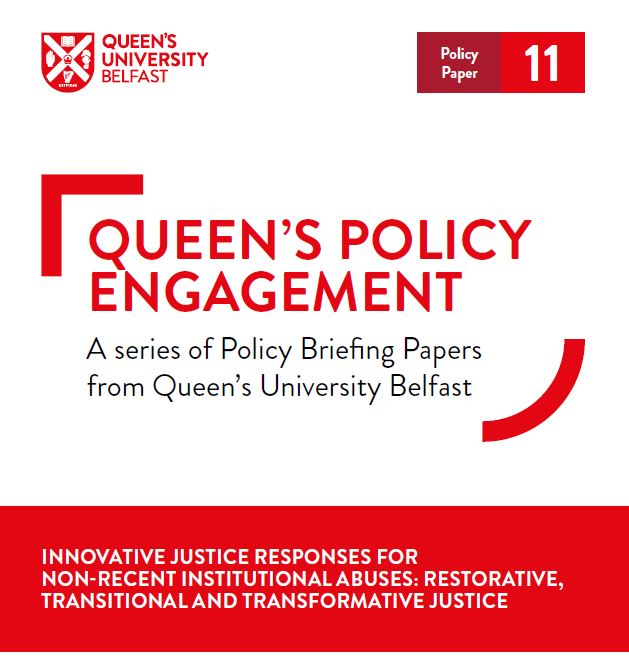Innovative Justice Responses for Non-recent Institutional Abuses: Restorative, Transitional and Transformative Justice
Much of the literature indicates that current legal systems premised on retributive justice are not adequately responding to the needs of victim/survivors.

Non-recent institutional abuse refers to the harm, marginalisation, and shame organisations and states have inflicted on individuals, nations, and entire groups of peoples. It can include physical, emotional, sexual, or cultural abuse and neglect within state and non-state institutions.
Institutional responses to such harms have historically focused on ‘bad apples’ and the actions of individual perpetrators (Keenan 2012). However, structural factors are increasingly recognised as contributing to such issues, with aspects such as gender, age, race, disability, and power relations playing a role in oppression and inequality, demanding different approaches (Penhale 1999). Thus, although individuals within institutions can be responsible for specific acts of abuse, harm may also be more widespread or systemic.
To continue reading, please click here.
Authors
Dr Sophie van der Valk (University College Dublin), Dr Allely Albert (TU Dublin), Prof Anne-Marie McAlinden (Queen’s University Belfast), Dr James Gallen (Dublin City University), and Dr Marie Keenan (University College Dublin).




